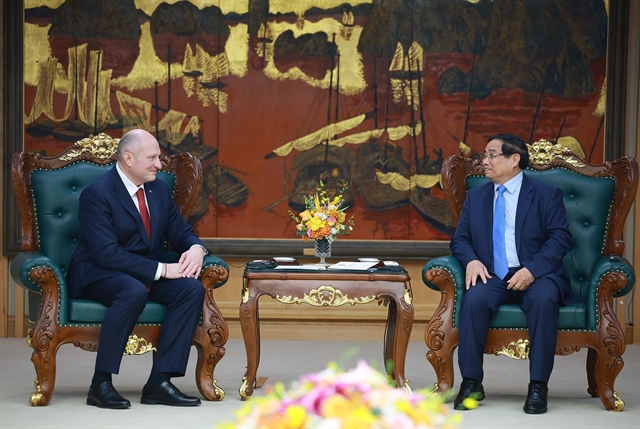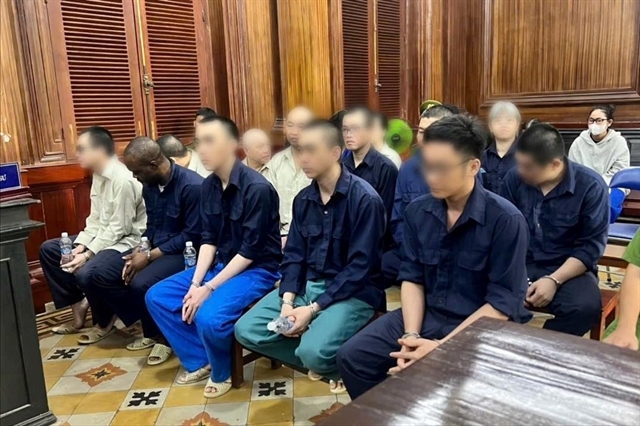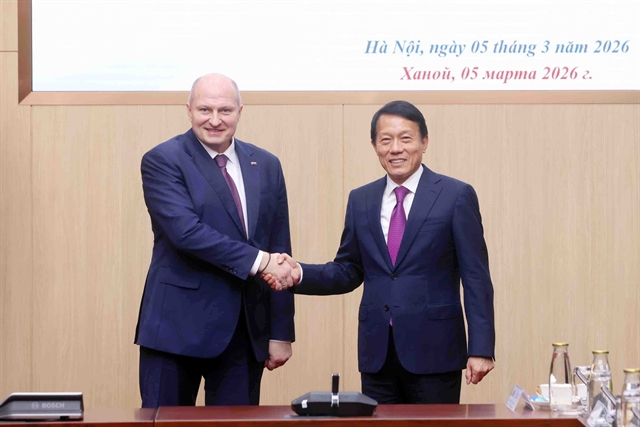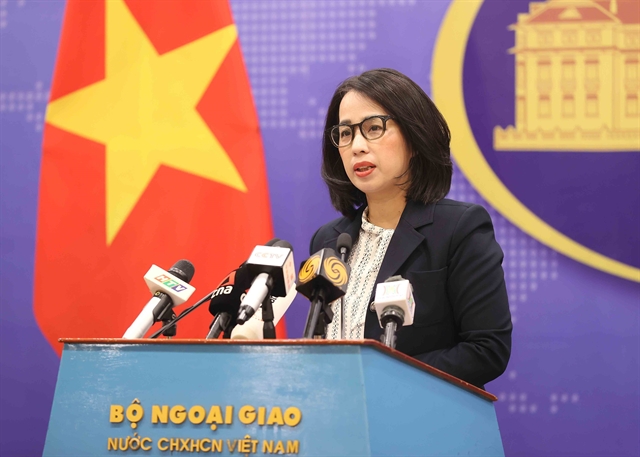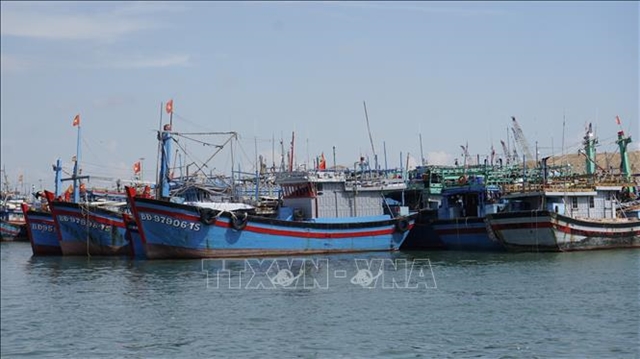 Society
Society
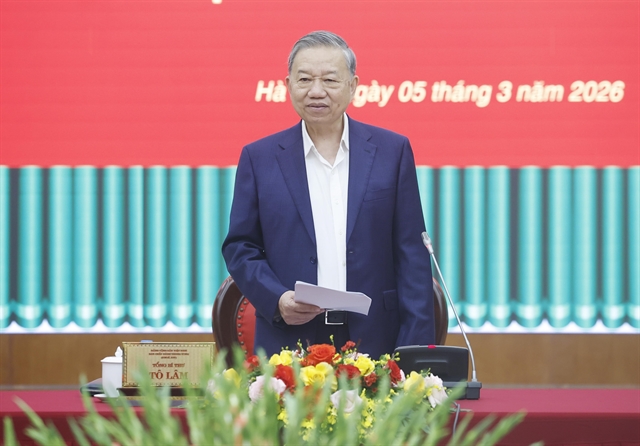
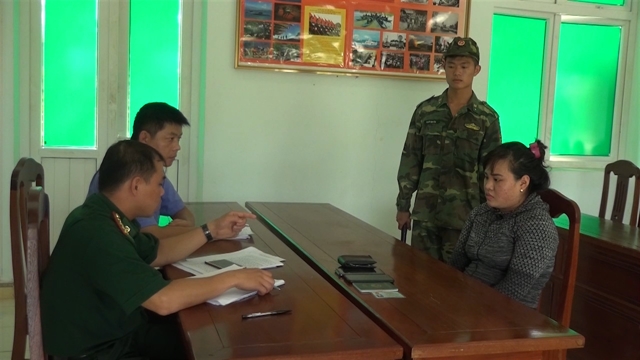 |
A human trafficker is caught by the Lạng Sơn Border Guards. — VNA/VNS Photos
HÀ NỘI — With high rewards on offer, human trafficking is big business, but often it’s the people at the bottom end of this criminal network left to pay the price.
One 31-year-old woman in the southern province of Sóc Trăng is a case in point.
Faced with a difficult financial situation, she felt she had no choice but to sell her newborn baby, her fourth child.
Nguyễn Thị Xàng offered to broker the deal and promised to pay her VNĐ40 million (US$1,700) to facilitate smuggling the child into China.
As she attempted to cross the border, guards from the Bảo Lâm Border Guard Station swooped and arrested the pair.
These cases are all too common. Some children have been sold for as little as VNĐ10 million ($420).
In another case, at Quân Phát Village in the northern mountainous province of Lạng Sơn, officials from the Chi Ma Border Station discovered a woman and a man carrying an infant and trying to illegally cross the border.
They are Nguyễn Thị Ngọc Trâm, 25, from the southern province of Đồng Tháp and Ngô Duy Khang, 31, from the southern province of Long An. The newborn was taken from an unidentified woman at the Long Khánh General Hospital in Đồng Nai southern province.
They intended to sell the newborn for VNĐ50 million ($2,100).
After being rescued, the child was taken to the Lạng Sơn Social Protection Centre for care.
In Lạng Sơn Province, which is considered a "hot spot" for criminals, including human traffickers, cross-border human trafficking is very complicated.
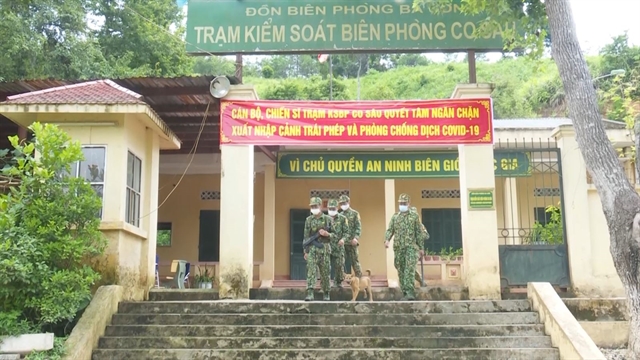 |
The Lạng Sơn Border Guards have strengthened patrols to prevent people from illegally entering or exiting the country.
From 2015 up to now, the provincial border guards have caught five cases of human trafficking with nine criminals and five victims, including four infants.
The provincial border guards said that the human traffickers’ tricks were becoming increasingly sophisticated. They closely work with each other to set up inter-provincial and transnational lines.
They often find women and children with low educational qualifications, in difficult circumstances, who need to find a job but lack education and awareness. They take the victims to China to sell into prostitution, forcing them to marry Chinese men or to work in terrible conditions.
Human traffickers often take advantage of the gender imbalance in other countries or of legal loopholes in giving and receiving adopted children.
Recently the traffickers had a new trick of selling fetuses. They take pregnant women to China to give birth and skip the necessary trip to smuggle the child.
Challenges
Statistics of the Ministry of Public Security showed that human trafficking in Việt Nam has decreased in the past 10 years, especially in the last three years, from 429 cases in 2010 to 192 cases in 2019, and 104 in 2020.
However, the annual number is still high, for example, in 2020 there were still 104 cases with 144 criminals arrested and 130 victims.
Colonel Đinh Văn Trình, from the Criminal Police Department under the Ministry of Public Security, said the most common forms of human trafficking in Việt Nam were forced labour, forced marriage, children trading, sexual abuse, and organ trading.
Human traffickers are very diverse, regardless of nationality, ethnicity, gender, age, and occupation. Most of them have previous convictions for human trafficking.
They take advantage of Việt Nam’s policies, pretending to visit relatives, travel, or do business to trick victims and take them abroad for the purposes of child adoption or marriage with foreigners.
Some of the traffickers used to be victims themselves and are caught in a vicious circle.
Trình said that because the criminals had many sophisticated tricks, human trafficking prevention and control faced many difficulties and challenges.
In the legal system at present, a number of criminal acts had not been regulated to handle thoroughly such as fetuses trading, forcing to marry a foreigner, and sexual exploitation, according to Trình.
Difficulties also come from the victims themselves. When being sold abroad, many people suffer from psychological trauma that leads to inaccurate reports, or they are threatened so they do not cooperate with the police.
When collecting evidence for the investigation, the cases that occur in foreign countries also adds a challenge for investigators.
To improve the fight against human trafficking, Trình said, it was necessary to increase awareness of vulnerable victims for prevention.
Now there are two main forces for the work, including the border guard and the Criminal Police Department under the Ministry of Public Security.
Supporting victims is also a major project in the anti-trafficking programme. Prime Minister Phạm Minh Chính assigned the Ministry of Labour, War Invalids and Social Affairs to preside over the project and other ministries have also joined.
Besides, the authorities also cooperated with international organisations and rescue organisations such as Rồng Xanh (Blue Dragon) and Ngôi nhà bình yên (Peace House) to support victims in human trafficking cases.
Trình said: “International cooperation is also very important in preventing human trafficking. We have advised the Party and the Government to sign bilateral agreements on human trafficking prevention with China, Laos, and Cambodia. We are building data on human trafficking associated with national population data to better connect with other forces in fighting against human trafficking crimes in the coming time." — VNS

